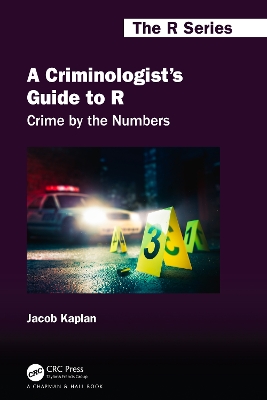Chapman & Hall/CRC The R
1 total work
A Criminologist's Guide to R: Crime by the Numbers introduces the programming language R and covers the necessary skills to conduct quantitative research in criminology. By the end of this book, a person without any prior programming experience can take raw crime data, be able to clean it, visualize the data, present it using R Markdown, and change it to a format ready for analysis. A Criminologist's Guide to R focuses on skills specifically for criminology such as spatial joins, mapping, and scraping data from PDFs, however any social scientist looking for an introduction to R for data analysis will find this useful.
Key Features:
- Introduction to RStudio including how to change user preference settings.
- Basic data exploration and cleaning – subsetting, loading data, regular expressions, aggregating data.
- Graphing with ggplot2.
- How to make maps (hotspot maps, choropleth maps, interactive maps).
- Webscraping and PDF scraping.
- Project management – how to prepare for a project, how to decide which projects to do, best ways to collaborate with people, how to store your code (using git), and how to test your code.
